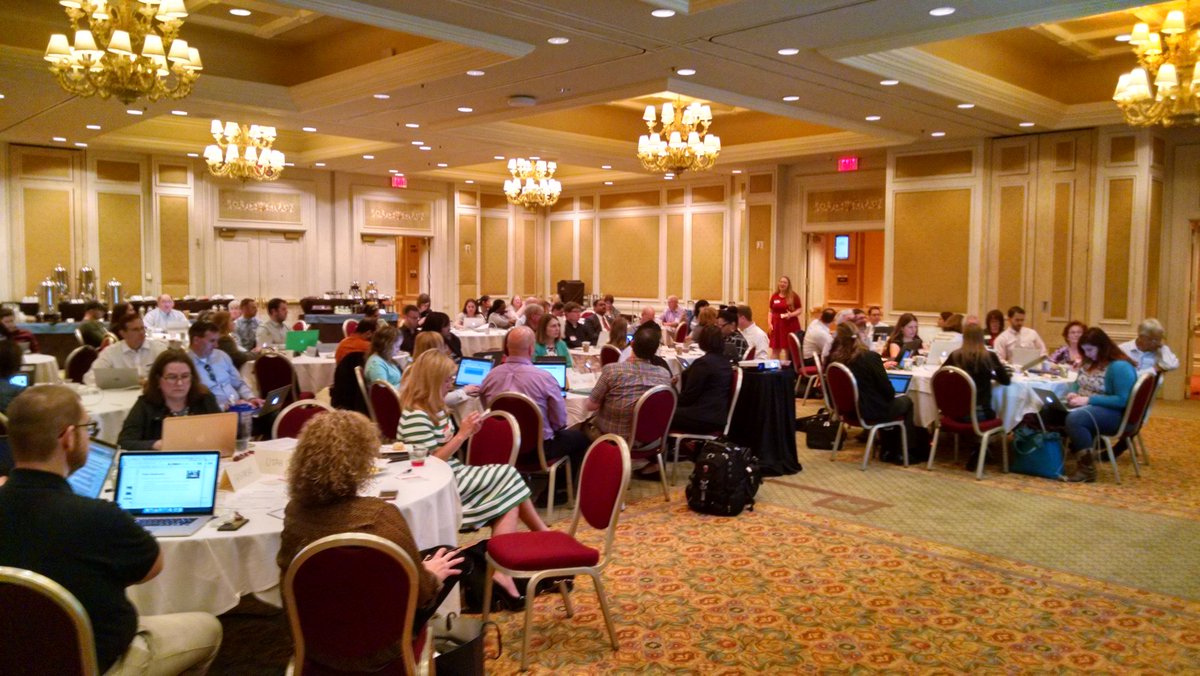Most people don’t associate either rain or computer science with Las Vegas Nevada but the last few days have seen plenty of both. In fact they tell me Las Vegas had as much rain this past weekend as they normally get in a year. As for the computer science part, the K12 CS Framework writing teams worked hard all weekend on the document incorporating feedback from the recent review period.
Monday was something different. Monday saw people from 14 states, 3 large school districts, a number of educational organizations (CSTA was there), many teachers, and education researchers meeting for a convening of stakeholders in the framework process.
The convening had several purposes (quoting the agenda)
- Stakeholders will get an update on the development of the framework.
- State and district teams will receive guidance on the different uses of the framework and discuss state and district-level implementation issues beyond the framework.
- State and district teams will also be able to provide input on the types of guidance materials that will help them message and implement the framework within their local education context.
- Advisors will provide input on the most current framework drafts and collaborate with the writing teams to address the feedback.
An ambitious agenda for sure. As a member of the writing team (focused on practices) I spent most of Monday with advisors and other interested stakeholders reviewing a lot of the recent work from that section. We got some great feedback both on the wording and of the process we used to arrive at the wording. This is definitely a community effort. Transparency and cooperation among all involved is essential.
First thing in the morning we heard from a number of states that are working to build CS for All programs in their states. There seems to be agreement that professional development and certification of teachers is a major issue across the country. (no surprise there) These states are working on professional development programs and they hope to work with hundreds of teachers this summer. Ultimately it will have to reach thousands of teachers though.
It’s amazing to me the difference between a virtual meeting and a meeting that takes place in the real world. There is so much more and better communication that takes place in real life. These meetings really help build relationships, mutual understanding (even if not always complete agreement) and generally help the process a lot. Some really great things happen when people can break off into smaller groups from time to time. Informal conversations not in the formal agenda also contribute to the process.
It’s hard to get away for meetings like this and it is not without monetary cost either. But the framework is an important project so it is great to see the number of really amazing people who are willing to take part.

People hard at work on the K12 CS Framework.
This sounds amazing! Very cool to see the work move forward, thank you for the time you put into it.
ReplyDeleteQuick question: I noticed you mentioned representatives from 3 large school districts were present. I know it's hard to get stakeholders that cover all bases, but were there also stakeholders to represent the small districts?
Over 95% of the country's districts have 20 or fewer schools but it feels like almost all of the attention for CS education is going to the 3 large districts that attended the meeting.
There were people there from smaller districts on the writing teams. My understanding is that code.org is working mostly with larger districts and at state levels. Hopefully state level work gets to smaller districts through that path. I don't know much detail about the work the various groups supporting this effort are doing with smaller districts. Certainly they are on my personal radar as both my wife and son work in very small districts. And I live in a small district.
ReplyDelete